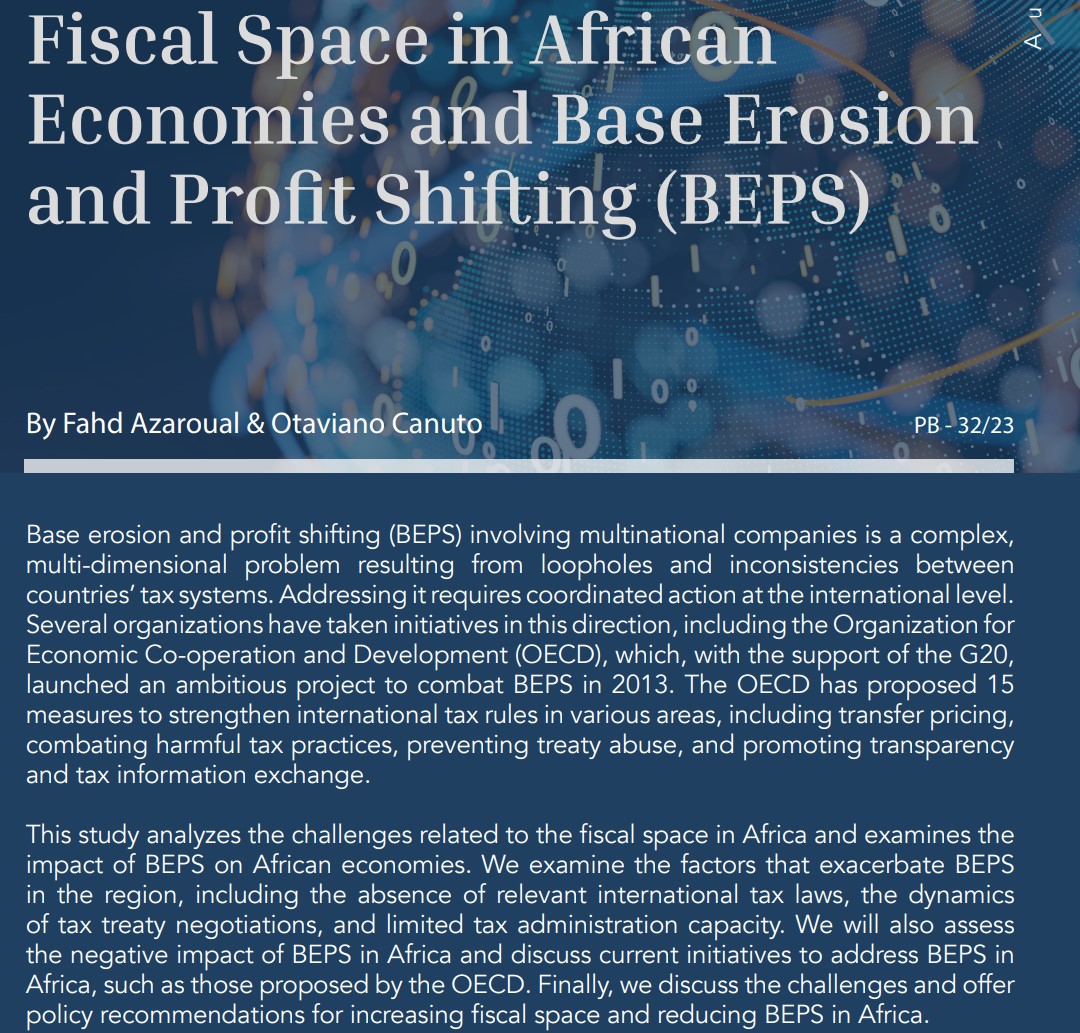Fiscal Space in African Economies and Base Erosion and Profit Shifting (BEPS)
Base erosion and profit shifting (BEPS) involving multinational companies is a complex, multi-dimensional problem resulting from loopholes and inconsistencies between countries’ tax systems. Addressing it requires coordinated action at the international level. Several organizations have taken initiatives in this direction, including the Organization for Economic Co-operation and Development (OECD), which, with the support of the G20, launched an ambitious project to combat BEPS in 2013. The OECD has proposed 15 measures to strengthen international tax rules in various areas, including transfer pricing, combating harmful tax practices, preventing treaty abuse, and promoting transparency and tax information exchange. This study analyzes the challenges related to the fiscal space in Africa and examines the impact of BEPS on African economies. We examine the factors that exacerbate BEPS in the region, including the absence of relevant international tax laws, the dynamics of tax treaty negotiations, and limited tax administration capacity. We will also assess the negative impact of BEPS in Africa and discuss current initiatives to address BEPS in Africa, such as those proposed by the OECD. Finally, we discuss the challenges and offer policy recommendations for increasing fiscal space and reducing BEPS in Africa.


